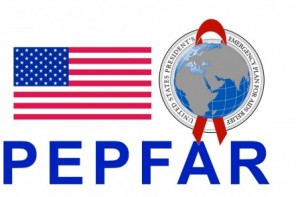TIME ran an article on Friday about the ICC and Bashir. Not a long article–it’s hard to find those any more–but a “context” piece, using recent developments at the court as a peg for a review of the Bashir indictment situation. It’s called “The Case Against Omar al-Bashir.”
Case, get it? Like, legal case, but also that’s the thing we say more generally to make an argument about something. Clever!
So you’d be forgiven if you thought, after a leading play on words, you might be reading an article by, say, a lawyer. Or a judge. Or a journalist with a reputation for covering complex matters of international law (and if you’re short on names, TIME, I can suggest a few). Or anyone whose credential for the byline is something other than an Oscar.
Who wrote the piece? Angelina Jolie.
Even better–who’s giant picture is sprawled at the top of the copy, taking up 1/3 of my internet page? Darfuri refugees who’ve lost families? The ICC prosecutor? Bashir himself? Anyone, in short, actually a part of the story?
Nope. Angelina.
I’m sure she’s a top-notch advocate who reads all the memos, checks out all the books and gets well informed. I’ve heard entertaining stories about the askance looks Bono got when he first started to get involved in Africa, and he turned out to be as good at politics and development as he is at pop music. And let me be the first acknowledge I’m partly peeved because Angelina is taking up a shrinking turf: there are fewer and fewer assignments for freelancer journalists, and we’re trained to cover this stuff and do it well (with way more quotes, which means more context, than you’d see in her piece). I can even imagine Angelina cashing in her celebrity equity for the cause: “You sell magazines by using stories about me, and even interviews I grant you sometimes. Now I want space to bring attention to Darfur.” What, TIME is gonna say no?
But none of that is really the point.
The point is that the TIME piece reinforces a trend I find increasingly troubling: that unless someone famous is talking about something, it doesn’t matter. I am sure that George Clooney, Mia Farrow, and now Angelina Jolie are doing a lot to get ordinary people who don’t know where Africa is to think about Darfur. That’s nice. But what does that say? It confirms, first of all, what some people who study altruism already know: on balance, that the higher your socioeconomic status, the “more” good you can do. Those of us who can make the biggest contributions of time and intellectual resources make them because can can afford to make them.
There’s one other thing the celebrity-phenomenon says: Unless you get a famous person to tour your refugee camp, America doesn’t care what happens to you. And the TIME piece reinforces that. You might argue that that’s true, and you might be right. But if we’re going to have a serious conversation in this country about how to “solve” Darfur–or in the pages of TIME, which hasn’t written about Sudan since Bashir was indicted in March–the person I want to hear from isn’t Angelina Jolie. Not because she hasn’t figured out how to think a lot about it; I’m not the nerdy girl in class who’s pissed that the cheerleader turns out not to be so stupid after all. But I’m against a messaging system that says unless someone already famous fronts the point, no one will listen–and, even worse, nothing will get done.
If Angelina wants to talk about Darfur, why not get a website and do it on her blog? Hell, that’s what I do. And if I looked like that in my Sexy Thinking Pose, I’d have more readers.



I definitely agree, but I think it’s a mistake to only focus on the media’s role in perpetuating the it’s-not-a-crisis-unless-celebrities-say-so mindset. In addition to magazines like TIME, some Darfur advocacy leaders also buy into the cult of celebrity activism and constantly try to recruit celebrities to peddle their pet causes. While celebrity endorsement can certainly be helpful in advocacy, it can sometimes be detrimental when all an advocacy leader seems to do is chase celebrities around all day.
http://savedarfuraccountabilityproject.wordpress.com/2009/05/20/5-ways-john-prendergast-could-help-darfuris-other-than-fasting/
First, I am way older than you are, so my first thought is, – ‘let her vent’ and my second thought is about what a great way you have with words. But then I read your piece again, and I am sorry, but I just think that the point should be attention on the problem, no matter who makes it. If you do have any beef that one can stick a fork into- it would be with Time Magazine. But hey, I almost never read Time and I always read your pieces and your blog.
That being said, this is your blog and I am glad to read it and hear what you have to say, always.
But is all attention to the problem equal, Diana? And what is the problem? Jolie’s not a journalist, and I’m sure TIME didn’t impose that standard on her, but hers is another “article” that lacks political context. I’m gonna hit that political context problem later this week, I hope… But I’m not sure all attention is the right attention. Though I’m so unsure that I’ll probably change my mind about this tomorrow.
Jina, have you ever read Marina Hyde in The Guardian? She’s fabulous for various reasons – steely intelligence, wonderful writing, devastatingly withering wit; I don’t know why I’ve never thought to hook the two of you up before. She has a weekly “Life in Showbiz” column which is unmissable, but, more to the point, she has just written a book about “celebrity” and it has a fantastic section on the phenomenon you discuss. Most hilariously, celebrity ambassadors – Leonardo di Caprio “holding talks” with Shimon Peres. The Guardian copyright on the excerpt they published has expired, but I urge you to track it down if you can! http://www.guardian.co.uk/profile/marinahyde+lifeandstyle/celebrity